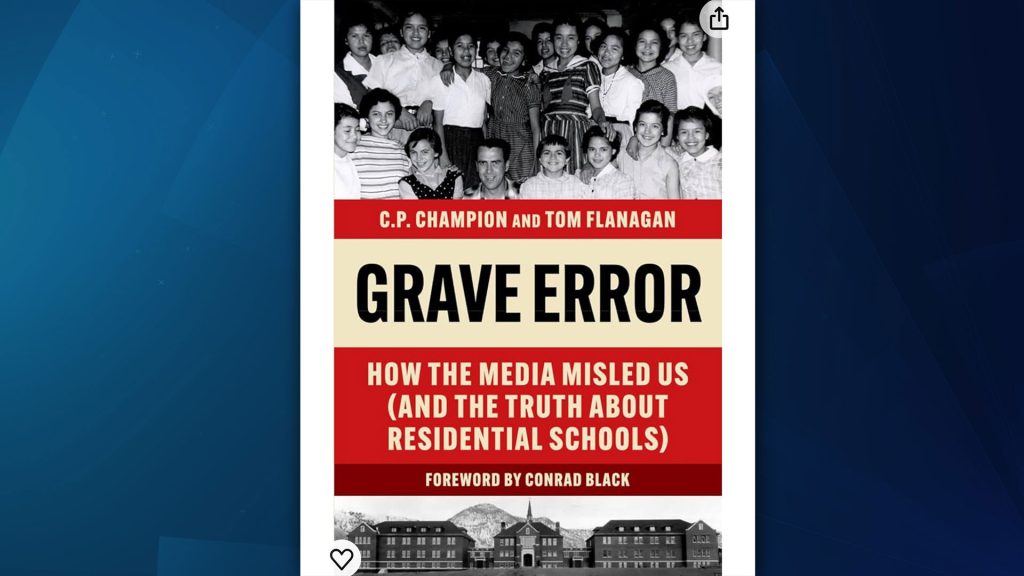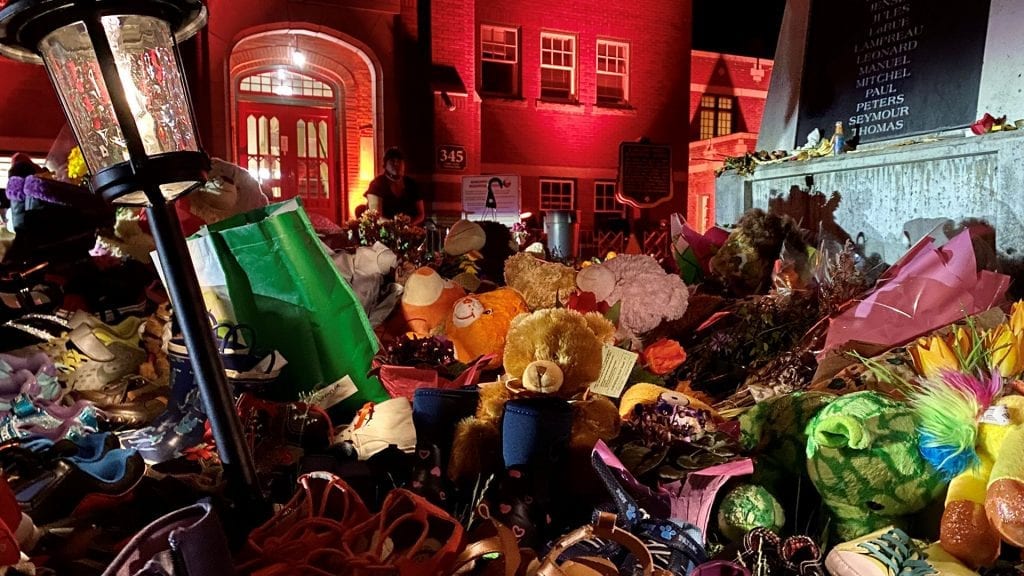
The Union of B.C. Indian Chiefs says the book “essentially questions the very existence of residential schools and their well-documented harms against Indigenous peoples." Photo: submitted
The Lhatko Dene Nation says it won’t work with the City of Quesnel until Mayor Ron Paull resigns.
Chief Clifford Lebrun says Paull has breached the trust of his community because of his association with a controversial book about residential schools.
“At first it was shock and disgust,” Lebrun told APTN News in an interview Thursday. “Then confusion and bewilderment.
“Why is this happening in a modern era like this? This sort of stuff’s just not acceptable in society in general anymore.”
Paull, who declined to be interviewed Friday, has said his wife, Pat Morton, handed out the book Grave Error, How the Media Misled Us (. But not him.
“I have not distributed that book to anyone,” he told the April 2 Quesnel council meeting where two city councillors called for his resignation.

The Union of B.C. Indian Chiefs says the book denies the harms caused by residential schools, something Lebrun called hurtful to residential school survivors and their communities.
“People are entitled to their opinions,” said Lebrun, whose mother is a residential school survivor. “I get that, I respect that.
“But at the same time, they should not be using their opinions to hurt people.”
Nearby Nazko First Nation has also refused to work with the city while Paull is in charge. Both band councils feel Paull should denounce the book.
Quesnel, situated between Prince George and Williams Lake in north-central B.C., has economic development partnerships in place with both nations.
“Our band, Lhtako, will not do any work with the city until the mayor is removed,” confirmed band manager Maynard Bara.
“This is Lhatko territory. When we worked with the last mayor, anything that we did we did together.”
But Paull appointed an Indigenous liaison soon after he was elected, Bara noted in an interview.

Terry Teegee, regional chief in B.C. for the Assembly of First Nations, says he supports the chiefs and their councils.
“They came out with a strong message denouncing the book and we denounce it as well,” he said.
A faction of Canadians denies atrocities occurred at residential schools, particularly since First Nations began reporting the discovery of potential unmarked graves in 2021.
It’s something Kim Murray, Canada’s independent special interlocutor on the search for unmarked graves, flagged in her interim report of June 2023.
“Denialism is violence,” Murray said at the time. “Denialism is calculated. Denialism is harmful. Denialism is hate.
“Denialism is a non-Indigenous problem,” she added, “and therefore it’s for non-Indigenous people to address it.”
Read more Canada should consider legal solution to fight residential school denialism: special interlocutor
Muray’s report calls denialism, described as the rejection or misrepresentation of basic facts about residential schools, the last step in genocide.
She suggested Parliamentarians enact a law against it.










